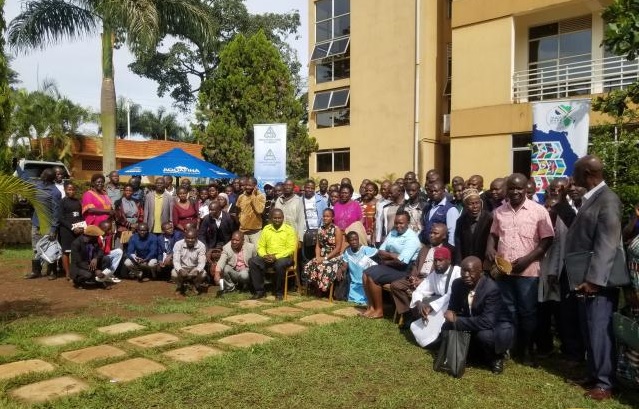The Uganda National Bureau of Standards (UNBS) is calling upon all Micro, Small and Medium Enterprises (MSMEs) in the Agricultural Value Chain to acquire and implement standards as well as undertake product certification of their products to increase market penetration and access to wider markets nationally, regionally and internationally.
This is in line with government Programs of the Parish Development Model (PDM), Export Promotion, Import Substitution and industrialisation, aimed at achieving the ten-fold economic growth of Uganda from USD50bn to USD500bn by 2040.
The remarks were made during a stakeholder sensitisation seminar with MSMEs in the agro-industry sector in Busoga sub-region organised by UNBS in collaboration with the Ministry of Agriculture, Animal Industries and Fisheries (MAAIF), with support from trademark Africa (TMA).
“Government has prioritised 18 products under the PDM program and as UNBS, we have developed standards for all these products. Therefore, we are currently training and empowering MSMEs at the grass root level dealing in the PDM selected value chains to acquire UNBS certification because without the UNBS certification mark, they cannot access markets.” Said Ms. Sylvia Kirabo, the Head of Public Relations and Marketing at UNBS.
The 18 products, as cited by Ms. Kirabo include coffee, cotton, cocoa, cassava, tea, vegetable oils/palm oil, maize, rice, sugarcane, fish, dairy, beef, bananas, beans, avocado, shea nut, cashew nuts and macadamia nuts. The PDM program is the last mile strategy for service delivery by the Government of Uganda, aimed at improving incomes and welfare of all Ugandans at the household level.
To date, UNBS has developed and domesticated over 1,133 product standards in the agriculture value chain. This development is also in line with the UNBS value proposition of handholding MSMEs to enable them acquire the UNBS certification mark.
“Government recently subsidised fees for MSMEs. Micro and Small enterprises now pay 500,000/= audit fees compared to 1,000,000 /= paid by Medium and Large enterprises per year. This amount is exclusive of testing fees. We acknowledge that further subsidisation of the fees is needed, however, we need to also appreciate the recent subsidisation efforts by government, aimed at facilitating development of MSMEs.” Said Mr. Abubaker Bakulumpagi, the Head of the MSME division at UNBS.
MAAIF Senior Inspector, Dr. Alexander Ssamula, encouraged MSMEs in the agricultural value chain to work with extension officers to understand the agro-chemicals suitable for use on their products, and how to use them.
“Some chemicals have components that have been banned internationally. Farmers should take note of this and reject such chemicals. The recommended chemicals are available on the MAAIF website, district offices, and with extension officers at the parishes.” Dr. Ssamula said.
Over 600 agro-industrial MSMEs have been sensitised and trained by UNBS and MAAIF on standards and certification under the Standards Partnership Project awareness campaign in the Lango, Buganda, Ankole, Bugisu and Busoga sub-regions.
The Standards Partnership Project implemented by UNBS and MAAIF, with support from TradeMark Africa
(TMA) is designed to align Uganda’s agricultural practices with Global Good Agricultural Practices (Global GAP) and other international standards, aimed at elevating the economic viability of Uganda’s agricultural sector by ensuring products meet the stringent quality and safety standards required by the domestic, regional and international markets.























